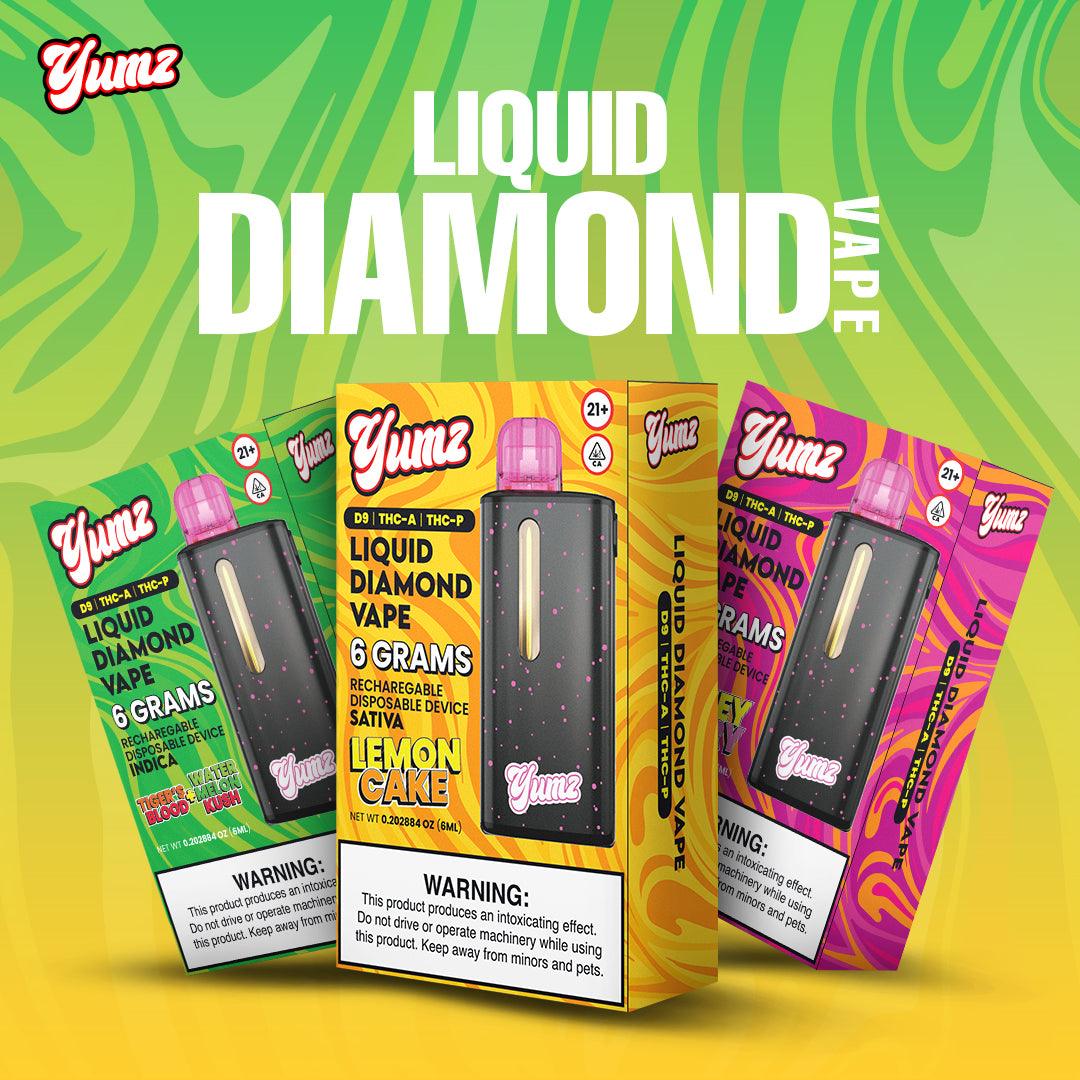
The Distinct Worlds of HHC and THC: Unveiling Their Secrets
In the ever-evolving landscape of cannabis and its derivatives, two compounds have caught the attention of both enthusiasts and researchers alike: HHC (Hexahydrocannabinol) and THC (Tetrahydrocannabinol). Though they share similarities, their differences carve unique niches in the world of cannabinoids. This blog embarks on a deep dive into HHC and THC, comparing their chemical structures, effects, legalities, and applications to demystify these potent molecules.

Introduction
As cannabis legalization progresses globally, the curiosity surrounding its compounds grows. THC, renowned for its psychoactive prowess, has long dominated discussions. However, a newer compound, HHC, has emerged, promising a blend of similar yet distinct experiences. Understanding these differences is crucial for consumers, medical professionals, and legal authorities alike.
Understanding Cannabinoids
Begin with an overview of cannabinoids, the active chemical compounds found in cannabis plants, highlighting their significance in medicinal and recreational use. This section sets the stage for a deeper investigation into HHC and THC.
Chemical Structure and Synthesis
THC: The Trailblazer
Detail the molecular structure of THC, its synthesis within the cannabis plant, and its role as the primary psychoactive ingredient. THC's ability to bind with CB1 receptors in the brain results in the euphoria it's famously associated with.
HHC: The New Frontier
Explain HHC's chemical composition, how it is hydrogenated from THC, and its relative novelty in the cannabinoid market. Unlike THC, HHC's hydrogenation process increases its saturation, potentially affecting its stability and potency.
Psychoactive Effects and Potency
The Highs of THC
Describe the psychoactive effects of THC, including euphoria, relaxation, altered perception of time, and in some cases, anxiety or paranoia. Discuss its potency variations based on strains and consumption methods.
HHC's Subtle Dance
Contrast with HHC's effects, which are reported to be milder and more manageable, offering a nuanced high that appeals to those seeking a less intense experience. Mention anecdotal evidence suggesting HHC's effectiveness in pain relief and anxiety reduction without the overwhelming psychoactivity of high-THC strains.

Legal Landscape
The Complex Web of THC Regulations
Navigate through THC's legal status, which varies widely across jurisdictions. With its Schedule I classification under U.S. federal law, contrasted by legal recreational and medicinal use in several states and countries, THC's legality is a patchwork of contrasting policies.
HHC's Legal Grey Area
Delve into HHC's legal status, which currently occupies a grey area, largely due to its synthetic derivation and the lack of specific legislation addressing it. This section should explore how the 2018 Farm Bill and its definition of hemp-derived products potentially exempt HHC from some of the legal restrictions placed on THC, pending further regulatory clarification.
Safety and Side Effects
THC's Knowns and Unknowns
Discuss the well-documented side effects of THC, including short-term memory impairment, dry mouth, red eyes, and in rare cases, long-term psychological effects when used excessively. Highlight the importance of moderation and the potential for dependency.
HHC: Questions and Considerations
Given HHC's relative novelty, outline the current understanding of its safety profile, emphasizing the need for more research to conclusively determine its side effects and long-term health impacts. Mention any known anecdotal side effects and compare them to THC's profile.
Therapeutic Applications
THC's Medical Journey
Cover the therapeutic uses of THC, recognized for treating conditions like chronic pain, nausea from chemotherapy, and multiple sclerosis. Include insights into ongoing research and the growing acceptance of THC in medical communities.
Exploring HHC's Potential
Speculate on HHC's therapeutic possibilities, drawing on preliminary studies and anecdotal reports that suggest benefits similar to THC but with potentially fewer side effects. Stress the need for extensive clinical trials to fully understand HHC's medical efficacy.
Consumer Choices and Market Trends
Preferences and Perceptions
Analyze consumer preferences for THC versus HHC, considering factors like desired effects, legal risks, and availability. Discuss how these preferences reflect broader trends in cannabis consumption and the demand for diverse cannabinoid profiles.
The Future of Cannabinoids
Speculate on the future of HHC and THC in the cannabis market, considering potential legal developments, advancements in cannabinoid research, and shifts in consumer behavior. Highlight the importance of informed decision-making for users navigating the expanding cannabinoid landscape.
A personal story of HHC vs THC
In the ever-evolving world of cannabis consumption, I've always considered myself an enthusiast eager to explore the myriad landscapes it offers. My journey with THC began as a quest for relaxation and a dash of euphoria, a familiar path tread by many. However, as the narrative of cannabinoids unfolded, a new chapter emerged with the introduction of HHC. This is the story of my transition from vaping THC to embracing the nuanced world of HHC.
Discovering THC: The First Puff
My adventure into the world of vaping began with THC, drawn by its widespread acclaim and the promise of a profound psychoactive experience. The first time I exhaled that vapor, I felt as if I had unlocked a new dimension of relaxation and sensory appreciation. Music had more layers, conversations flowed with unparalleled depth, and the world seemed to pulse with a vibrant, almost tangible energy.
However, as with all tales of exploration, there were challenges. The intensity of THC's effects sometimes veered into discomfort, with bouts of anxiety and paranoia occasionally piercing the otherwise serene experience. The legality of THC, always a patchwork quilt of regulations, also cast a shadow of uncertainty over my exploration.
The Transition to HHC: A New Chapter
Enter HHC, a cannabinoid heralded for offering a parallel to THC's benefits without the weight of its drawbacks. Skeptical yet intrigued, I embarked on this new chapter with a sense of cautious optimism. The first vape of HHC was a revelation. The experience was akin to a delta 9 THC vape euphoria but tempered with a clarity I hadn't anticipated. It was as if HHC danced on the edges of THC's psychoactive potency, offering a high that was both familiar and refreshingly new.
The Differences Unveiled
The most striking difference lay in the quality of the high. Where THC often enveloped me in a dense fog of euphoria, HHC presented a lighter veil, enhancing my mood without overwhelming my senses. This subtle distinction made for an experience that felt more controlled, a gentle ascent into relaxation rather than THC's rapid catapult.
Social situations, once a roulette of potential THC-induced anxiety, became more navigable under HHC's influence. Conversations flowed freely, unmarred by the undercurrent of paranoia that sometimes accompanied my THC adventures. The creativity THC sparked was still there, but with HHC, it felt more like a stream than a flood, easier to channel and express.
Legal and Social Considerations
The transition also brought a sense of ease on the legal front. HHC's ambiguous status in the tapestry of cannabis regulation offered a semblance of comfort, though I remained acutely aware of the ever-changing legal landscape. This slight lift of legal uncertainty allowed me to enjoy HHC with a lighter heart, though not without due diligence on my part to stay informed.
Reflecting on the Journey
Reflecting on my journey from THC to HHC, I recognize the value of both cannabinoids in the broader narrative of cannabis exploration. THC, with its intense highs and undeniable potency, taught me the depths of euphoria and the importance of respecting the power of psychoactive substances. HHC, on the other hand, offered a more nuanced experience, akin to finding a hidden path in a well-trodden forest—a path that led to a balanced high, where relaxation and clarity coexisted.
The Personal Verdict
For me, HHC has emerged not as a replacement for THC but as a valuable counterpart. It serves as a reminder that the world of cannabinoids is rich with diversity, each compound offering a unique key to unlocking different aspects of the psychoactive experience.
As I continue my exploration, the choice between THC and HHC is not a matter of superiority but of preference and circumstance. On days when I seek a profound escape, THC remains a trusted friend. But when I desire a gentle uplift, HHC stands ready, a testament to the ever-expanding horizon of cannabis innovation.
When contemplating the use of THC or HHC products, several crucial considerations come into play. These include the products' availability and accessibility, personal preferences, and the potential risks and side effects associated with each cannabinoid. Understanding these elements is vital in making an informed choice that aligns with your needs and desires.
Essential Considerations for Choosing Between THC and HHC
Potency and Effects: HHC, known for its milder psychoactive effects compared to traditional THC, offers about 80% of THC's potency. This distinction is critical for those seeking a specific intensity of experience. While HHC tends to provide a more lucid, less intense high, it's important to explore the existing research on the safety and efficacy of each cannabinoid. Although studies on HHC are not as extensive as those for CBD and THC, preliminary insights suggest a distinct user experience.
Availability and Accessibility: THC, naturally present in marijuana plants, is widely recognized and accessible in regions with legal support. Conversely, HHC's natural occurrence is less common, often requiring synthesis or extraction from hemp, cannabis, and other botanical sources. Legal regulations, varying significantly by location, play a pivotal role in the availability and accessibility of these compounds. While THC faces legal restrictions in many areas, HHC's status, often determined by its negligible THC content (typically less than 0.3%), may enjoy broader legality, offering an alternative in places where THC is heavily regulated or banned.
Personal Preferences and Desired Experience: Individual preferences heavily influence the choice between THC and HHC. Whether seeking a mild, relaxing effect or a more profound psychoactive journey, understanding one's tolerance and desired outcome is key. The diverse chemical compositions of cannabis products mean that they can offer a wide range of experiences, catering to the varied preferences of users.
Understanding Risks and Side Effects: Awareness of the potential risks and side effects associated with cannabinoid use is essential. Both HHC and THC can lead to side effects such as dry mouth, red eyes, and changes in heart rate, alongside psychological effects like anxiety and paranoia. Moreover, the use of high-potency cannabinoids may be linked to an increased risk of mental health conditions, including psychosis, depression, and anxiety disorders. Potential cognitive impacts, such as impaired memory and concentration, highlight the importance of moderation and informed usage.
Making an Informed Decision
Choosing between THC and HHC involves a careful evaluation of one's preferences, the desired intensity of experience, and an understanding of the legal and health implications. As the cannabis industry continues to evolve, staying informed about the latest research and legal developments is crucial. By considering these factors, individuals can navigate the complexities of cannabinoid use and make choices that best suit their personal health and wellness goals. Remember, individual reactions to cannabinoids can vary significantly, underscoring the importance of approaching cannabinoid use with caution and awareness.
Exploring the Psychoactive Landscape of THC
THC, the primary psychoactive component in cannabis, is renowned for its capacity to alter perceptions and mood. This compound can produce a range of effects, from euphoria to enhanced sensory experiences, influenced by factors such as dosage, cannabis strain, and consumption method.
Physically, THC may stimulate appetite and slow reaction times, while its mental effects can range from sensory enhancements to mood alterations. Users might experience memory challenges and cognitive changes with short-term use, with potential for more significant cognitive impacts from prolonged exposure. Both recreational and medicinal users should be mindful of these effects, as THC can also provoke hallucinations at high doses by interacting with brain regions involved in emotion and cognitive processes.
In contrast, THC can also generate positive feelings, including relaxation and decreased inhibitions, contributing to its widespread use.
The Therapeutic Promise of HHC and THC
The intrigue surrounding HHC and THC's medical potential is growing, with ongoing research into their effects on the human body. Despite differing in psychoactivity, both cannabinoids engage with the endocannabinoid system, eliciting a variety of physiological responses.
Current research, while still developing, has begun to uncover promising therapeutic applications for both compounds. Unlike THC, which is accompanied by euphoric sensations, HHC offers a non-psychoactive alternative that may still provide significant health benefits. These cannabinoids have been associated with relief from chronic pain, anti-inflammatory effects, alleviation of chemotherapy-induced nausea and vomiting, and contributions to seizure management in conditions like epilepsy and autism spectrum disorder (ASD).
As scientific understanding of these cannabinoids expands, the distinction between THC's psychoactive properties and HHC's therapeutic potential without such effects becomes increasingly important. This differentiation underscores the importance of personalized medicine in selecting the appropriate cannabinoid for individual health needs and preferences, ensuring that patients can access the benefits of these compounds in a manner that best suits their medical and lifestyle requirements.
Conclusion
Reiterate the significance of understanding the differences between HHC and THC for consumers, healthcare providers, and lawmakers. Encourage ongoing education, research, and dialogue as the cannabis industry and its regulatory frameworks evolve.





